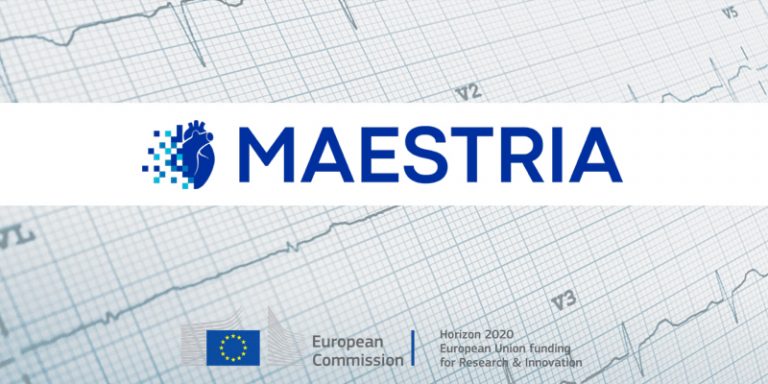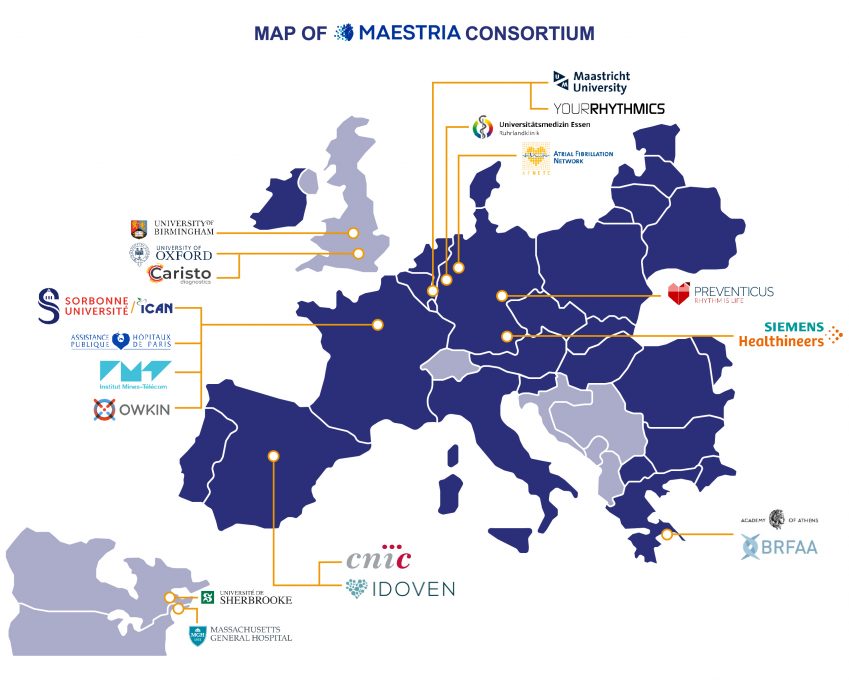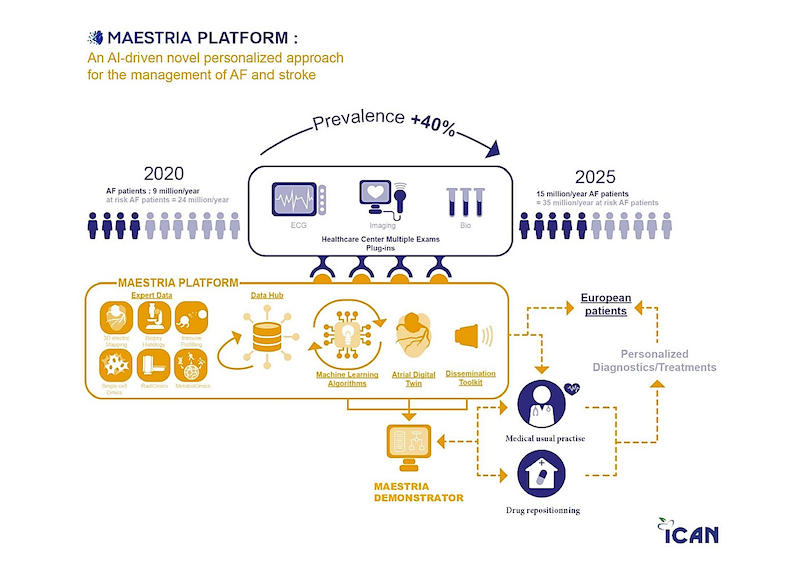
The MAESTRIA (Machine Learning and Artificial Intelligence for Early Detection of Stroke and Atrial Fibrillation) research project was officially launched in late September. Coordinated by Sorbonne University and responding to the H2020 call for projects on digital diagnosis, this consortium brings together 18 partners from Europe, the United States and Canada. It is an innovative work to develop the first digital platform for integrative diagnosis of atrial cardiomyopathy.
Considered the leading cause of stroke and the most common heart rhythm disorder, atrial fibrillation affects 1% of the world’s population.
The importance of effective clinical management
Researchers estimate that up to 8% of people over the age of 80 suffer from the condition. Clinical management of atrial fibrillation is therefore central in order to anticipate the onset of arrhythmia.
As indicated by Sorbonne University, “in France, nearly 750,000 people suffer from atrial fibrillation and the number of annual cases is estimated at between 110,000 and 230,000. Its incidence and prevalence are growing rapidly, mainly due to the aging of the population. The increase in the number of people with AF has a high cost to the health care system, estimated at nearly 2.5 billion euros. The understanding and prevention of this pathology therefore represents a medical and economic challenge”.
A consortium of 18 partners
The MAESTRIA project, coordinated by Prof. Stéphane Hatem, director of the IHU-ICAN (Institute of Cardiometabolism and Nutrition – Sorbonne University/Inserm/AP-HP) and of the Inserm UMR S1166 research unit at Sorbonne University, aims to develop and validate the first digital platform for the integrative diagnosis of atrial cardiomyopathy
The MAESTRIA consortium includes 12 academic institutions with a strong focus on clinical data integration and artificial intelligence research, 5 biotechnology companies (SMEs) and 1 large imaging company:
- Sorbonne University
- Public Assistance of the Hospitals of Paris
- University of Oxford
- University of Birmingham
- AFNET
- University of Essen
- University of Maastricht
- University of Athens
- CNIC
- Massachusetts General Hospital
- ITM Transfer
- Centre de Recherche du CHU de Sherbrooke
- Siemens Healthcare
- Caristo Diagnostics Limited
- Owkin
- Idoven
- Preventicus
- YourRhythmics
A total of 18 partners are involved in the creation of this tool that will identify new therapeutic targets to achieve improved diagnostic accuracy by combining imaging data with physiological data (omics, clinical…) of patients. In doing so, it will increase the effectiveness and efficiency of treatments by allowing better prevention of complications of atrial cardiomyopathy, such as atrial fibrillation and stroke, two major health problems.

Three strategic areas
- Personalised diagnosis and innovative multidisciplinary care pathways through the combined use of genomic, metabolic and tissue inflammation research data. The analysis of these data involved in the progression of the disease will enable a personalized diagnosis and define an innovative multidisciplinary patient pathway.
- Risk stratification in AF patients: the use of artificial intelligence will allow the reading and analysis of a large number of imaging data in order to define the risk of each patient’s disease evolving into a stroke. Risk stratification will make it possible to propose new therapeutic strategies.
- Deployment of a digital diagnostic platform at European level.

More information on MAESTRIA on the project website.
Translated from Retour sur le lancement de MAESTRIA, plateforme numérique de diagnostic intégratif de la cardiomyopathie auriculaire









